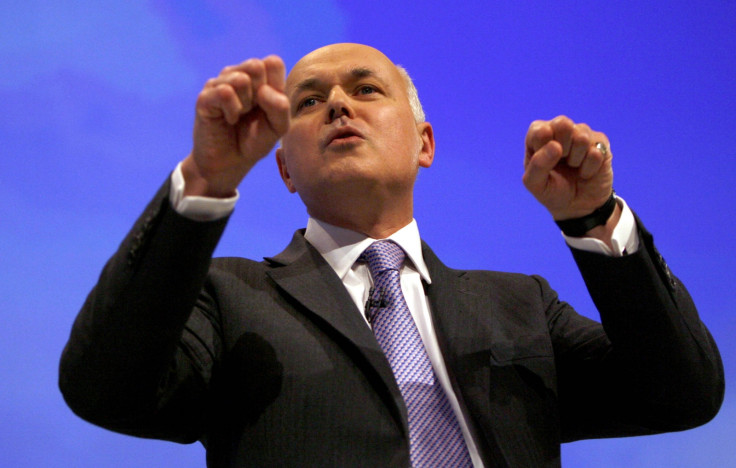Universal Credit: National Audit Office Warns Flagship Benefits Reform May Not Prove Value for Money

The UK government's flagship welfare reform may not prove value for money, according to the National Audit Office (NAO).
The scheme was introduced by the coalition government to replace six existing benefits and tax credits, including Income Support and Housing Benefit, with a single monthly payment.
The initiative has suffered early setbacks and was reset in 2013.
But the NAO said the Department for Work and Pensions (DWP), which is led by Iain Duncan Smith, has reduced the delivery risks by "significantly extending" its timetable for introducing Universal Credit and choosing a "more expensive" twin-track approach – the roll-out of its "live service", while at the same time developing its new "digital service".
"The DWP believes the additional costs of this approach are justified because it expects Universal Credit to achieve substantial benefits for society sooner and more safely," said Amyas Morse, the head of the NAO.
"However, such potential benefits do not mean Universal Credit will be value for money regardless of how it is implemented and the cost of doing so."
The watchdog said, in the longer term, the DWP has reduced risks in its planned transfer of most tax credit claimants to Universal Credit by extending the timetable by two years to the end of 2019.
The move came after it was becoming "increasingly unlikely" that the DWP could transfer over one million tax credit claimants on to Universal Credit in April 2016 as planned without significant operational risks.
The DWP's digital service has been delayed and is still in the very early stages of development, according to the NAO.
"At this early stage it will depend heavily on manual intervention and will handle only a small number of claims – but it is soon to be tested with all claimant types, even the most complex," Morse added.
"The timetable is challenging, with the Department planning to start to roll out its fully scalable digital service in just 18 months' time.
"It expects significant savings from its digital service, but does not yet have a contingency plan should the digital service be delayed or fail. It has not evaluated whether it could use the live service instead."
The NAO estimates that using live service systems, without further investment, could cost £2.8bn ($4.4bn, €3.5bn) more in staff costs.
"In principle, the DWP's approach should allow it to learn from experience, improve the design and readiness of services and reduce risks," Morse said.
"Given the gradual progress of the past year and the early stage of digital development, the Department has not yet tested its new digital approach, or gone through the process of integrating this with live service."
But the government said that the investment in IT systems has "hugely outweighed the costs".
"The investment in IT has a value that hugely outweighs the costs as it's being used, day in and day out, and will continue to be used even as we start to test an enhanced digital solution from this week," said
"The NAO report recognises that we are reducing risks and making progress. In terms of value for money, when fully in place the economy will benefit by £7bn each year and is set to make three million families better off on average £177 a month.
But Rachel Reeves MP, Labour's Shadow Work and Pensions Secretary, said the report cast "grave doubts" over the future of Universal Credit.
"The National Audit Office report is further evidence that the government's handling of Universal Credit has been disastrous," Reeves said.
"It's neither on time or on budget as the government promised. It's yet another example of Tory Welfare Waste. Ministers must urgently get a grip of the huge waste and delays to this failing programme."
© Copyright IBTimes 2025. All rights reserved.






















